

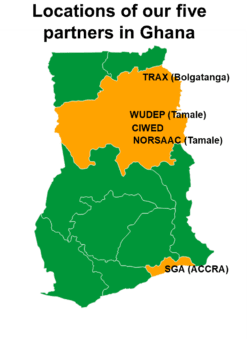 Five Tools for Self Reliance projects have started this month, providing formal training opportunities for young people in Northern communities, and for women in Accra
Five Tools for Self Reliance projects have started this month, providing formal training opportunities for young people in Northern communities, and for women in AccraFor rural communities in Ghana, the Covid-19 pandemic has created a complex web of challenges as the continent of Africa experiences a third wave.
Although cases of Covid-19 remain relatively low in Ghana, the economic impacts of the pandemic are making life incredibly difficult for people.
Economic growth has slowed down, people have lost their formal and informal jobs, and the price of food and basics commodities has soared.
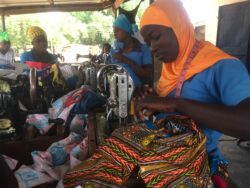
Tailor trainees learning how to make clothes, training with our partner NORSAAC
High rates of unemployment and lack of opportunities is a pervasive problem for young people living in Northern Ghana. Only 2% of young people have opportunities to enter the formal job market. Many young people looking for jobs do not have the basic academic requirements to join a formal training course. Often they feel their only option is to leave their families and make the move South to the capital city of Accra to find work. Whilst making the move away from their family unit young people are vulnerable to exploitation as they try to find work.
Working with our fantastic partners, five new projects have started this month creating opportunities within communities for young people to establish livelihoods close to their families and close to their homes.
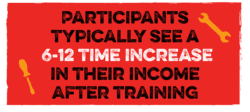
Women who didn’t go to or finish school can find themselves moving away from their rural communities to work as street vendors or ‘kayaye’. 20 young women from street communities in Accra will be economically empowered with the opportunity to train in tailoring skills, and be supported through business and life skills sessions. All trainees will sit the nationally recognised NVTI accreditation to formalise their learning.
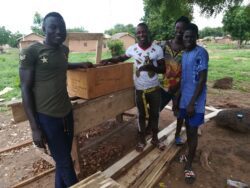 Wuni Zooya Development Programme (WUDEP)
Wuni Zooya Development Programme (WUDEP)WUDEP are our partner in Northern Ghana who have been supporting young people overcome poverty through skills training and advocacy work. 110 people will spend six months at the training centre learning either welding, construction, hairdressing, tailoring or auto mechanics skills, as well as the business skills to know how to set up and run a successful business. Life skills, literacy and numeracy sessions boost young peope’s self esteem. For the second six months they will be learning in a work-placement with a successful local business, to gain valuable experience before taking their final exams.
CIWED was established in 2013 with their mission to empower women to gain economic independence. This project will support 26 young people from the five communities in the Nantong District where poverty levels are high, and few people have the opportunity to go to school, to learn a vocational, business and life skills.
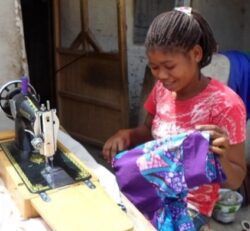
As well as training 26 young people with welding, carpentry, tailoring, masonry, appliance repair and auto mechanics, the project will train 130 local women who are already working with shea trees to produce shea butter. The training will equip the women with skills to increase cultivation techniques as well as the picking and packing process which will ensure they are meeting the highest environmental standards and produce good quality products.
The second year of our two year vocational training project delivered by partner NORSAAC has begun, supporting 40 young people with skills training in bee keeping, electrical installation, welding and fashion design skills.
The project has been working with schools and communities to start conversations about the damage child marriage has on young girls lives and their families, and educate young people about safe sex. Community outreach work not only supports young people to understand their options, but also their families.
All trainees from the projects will be equipped with tools when they graduate to enable them to hit the ground running when they graduate.